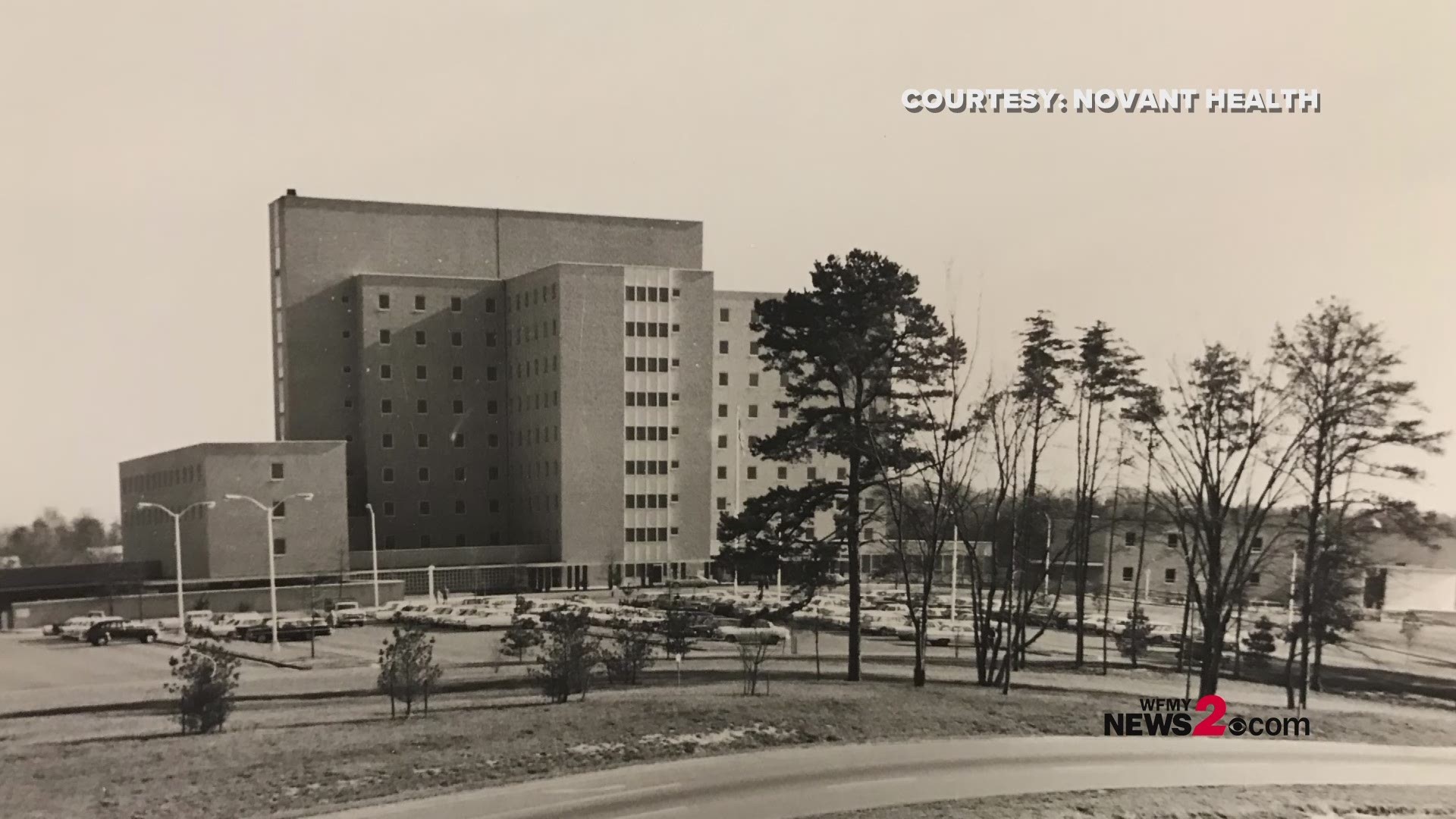WINSTON-SALEM, N.C. — Over 6,500 babies are born every year at Novant Health Forsyth Medical Center in Winston-Salem.
That’s more babies than any hospital in North Carolina outside of Charlotte.
The workforce at Forsyth Medical Center is 83% female according to Sharon Nelson, chair of the Women's Business Resource Group at the hospital.
These numbers make it obvious that much of the population the hospital serves is female and that role women play dates centuries back.
Novant Health shared that according to a 1917 article in the Twin City Sentinel newspaper, in 1887 a group of local women volunteers called the Ladies Twin City Hospital Association raised funds to open the first Twin City Hospital as a 10-bed hospital inside the Martin Grogan home in downtown Winston (before Winston and Salem merged.)
Later, through fundraising efforts by the women, a stand-alone Twin City Hospital building was built on what is now known as Brookstown Avenue in Winston-Salem.
According to Janet Bright, Chief Nursing Officer FMC, the efforts of these women were all for the community and they were pioneers of the medical prominence Winston-Salem is known for today.
"It wasn't just for the hospital, but serving the needs of the community," she shared.
The Twin City Hospital became City Hospital in 1914 which expanded from 90 beds to 547 beds by 1930.
In 1964, Forsyth Memorial Hospital opened on Silas Creek Parkway and became what we now know as the Novant Health Forsyth Medical Center.
One of the wings of Memorial Hospital, still part of the current hospital, was first a nursing school where "new nurses and leaders were shaped out of the young women who came through the 3-year diploma program," FMC wrote in a blog.
"From that nursing school came our leadership, the nurses that cared for patients at the bedside as well as went out into the community," Bright explained.
Thanks to the many efforts of women in nursing, North Carolina became the first state to have registered nurses.
In fact, according to Bright, North Carolina was the first state that had a nursing association, now the North Carolina Board of Nursing.
Today, one of the main missions of the medical center is to serve and provide care for women at the various stages of their life and from various walks of life, says Ann Smith, Director of Women’s & Children Care.
"[Women] tend to care for everyone but themselves," Smith said. "We really try to partner with them to learn how to care for themselves."
Sharon Nelson, chair of the Women's Business Resource Group, says a lot of efforts are also made to ensure the role of women remains prominent even in leadership.
"We have expanded our executive team to add more women to that core executive team and we've done that purposefully," Nelson said.
Bright explains that compared to when she started her career in the nursing field, the doors are open wider than ever before.
"Women have so many choices and it's really up to them how far they want to go," she said.

